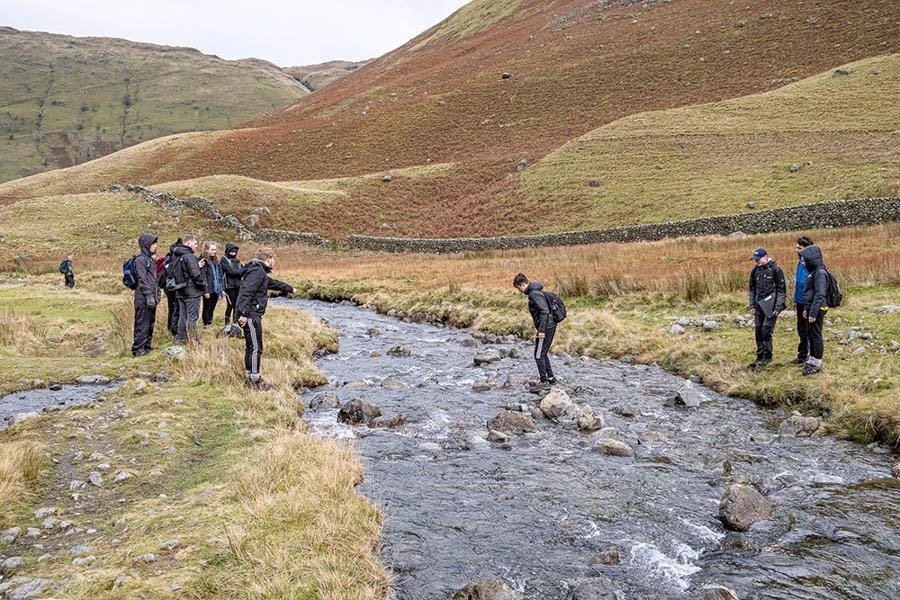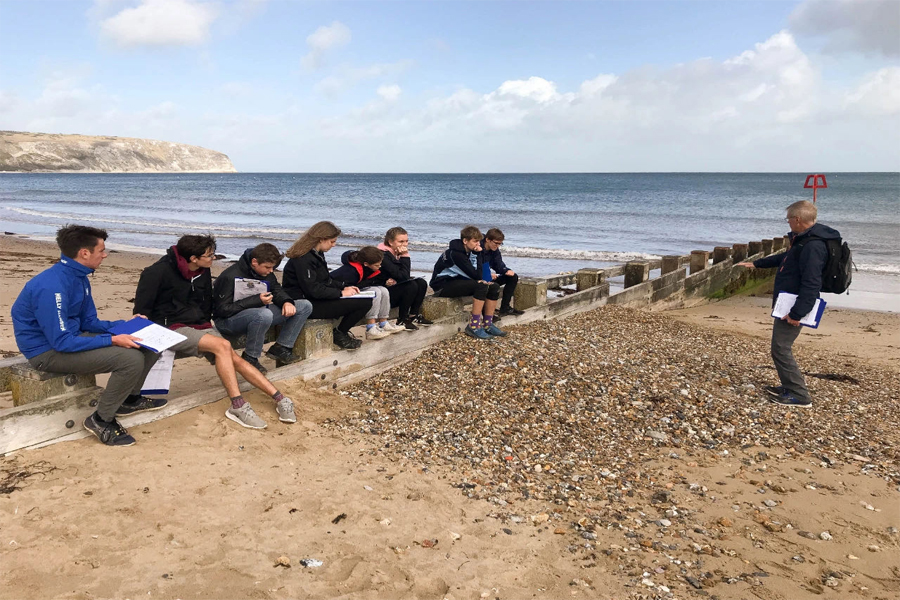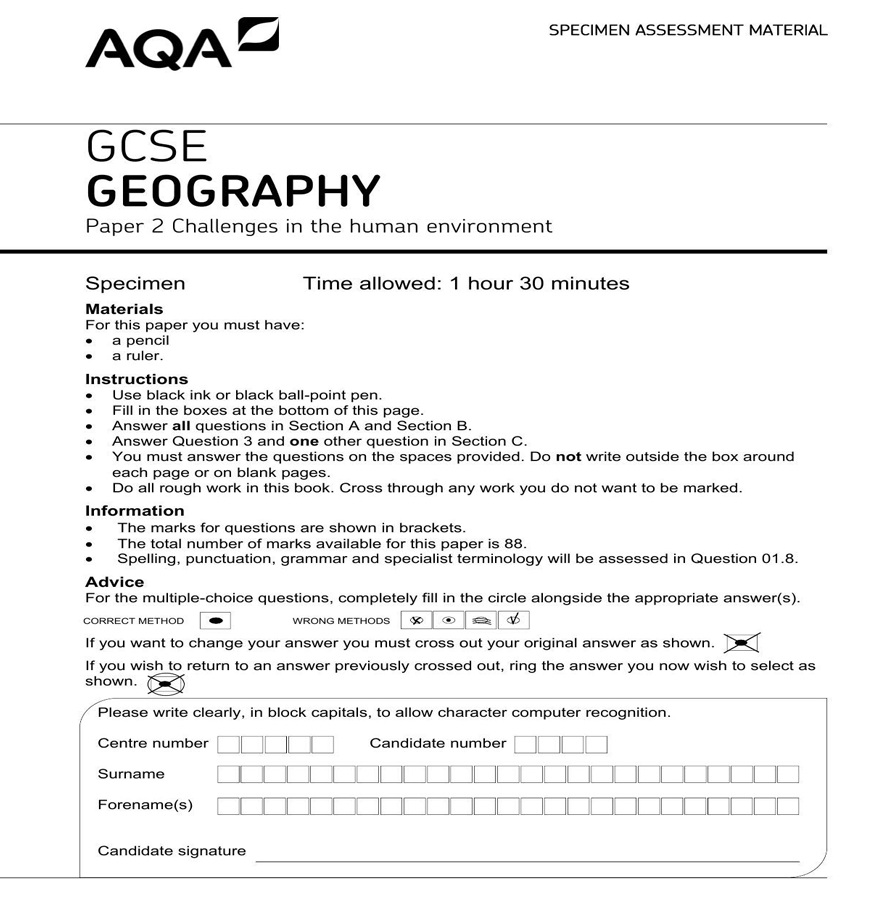留学关注
Jack的小留学生日记 l 地理学 II
智澳教育是英国克利夫顿学院特许认可的
报考招生咨询服务机构,
欢迎广大家长朋友前来咨询了解!
大家好,这期会继续为大家讲解一下GCSE地理学的内容。
实地考察
除了在教室上课之外,我们还需要进行两次实地考察项目,这也是GCSE地理的一部分,一次考察涉及自然地理,另外一次则关于人文地理。自然地理野外调查基于课程大纲中“生活世界”与“英国景观”中的主题,人文地理则关于对城市或城镇的城市化和经济活动调查。具体是什么内容要由学校来决定。我认为实地考察课程是对课堂教学的极大补充,它能帮我们把课堂中所学的知识付诸实践,同时还能切身体会现实生活中的自然地理现象。

考试
AQA的GCSE学习结束时,需要完成三篇论文,第一篇是关于“自然环境中的生活”,这篇文章需要涵盖课堂上所学过的三个有关科学地理主题的问题—“自然危害的挑战”,“生活世界”以及“英国的自然景观”。考试时间为1小时30分钟,满分为88分。考试题分别为1、2、3、4、6或9分,这一部分也会涉及到一些数学问题,相对来说还是比较容易的,只有简单的百分比计算,也允许使用计算器。但是SPAG(拼写、标点、语法)的标准会影响分数,如果这三个方面运用的好的话能得到额外3分,这也意味着对于英语水平的掌握程度,如书写的流利度、准确性等均会被考虑在考试范围内。这部分考试还会有很多图形题,如地图、照片、图形等。这些图形会放在单独的卷子上或者信息手册里。

第二篇论文的主题为“人类环境下的挑战”,这篇与第一篇论文几乎完全相同,不同之处在于,它包含了人文主题,如“城市问题与挑战”,“不断变化的经济世界”和“资源管理的挑战”。这部分考试会涉及三个部分,总时间大约为一小时30分钟,总分也是88分。

第三篇论文与前两篇有很大不同,这部分被称为“地理应用”。相比前两部分,这篇文章的篇幅较短,需要大概1小时15分钟,总分为76分。这篇文章会分为上下两个部分,第一部分是“问题评估”,我们会被问到一些学习资料手册当中的内容,这份资料在考试前1-2个月会分发下来,大家可以有足够的时间准备。第二部分则是“实地考察”,学生会被测试进行实地作业,还有如何进行实地作业的方法。在这个部分,学生也可以使用计算器,所涉及问题的分数与上两篇也是相同的。
总而言之,我认为地理学是一门十分有趣的学科,不仅能很好的结合自然地理与科学地理,还可以很好的把经济学、政治学以及国际关系相关的人文地理结合起来。
Jack
英文版
Fieldwork
As well as classroom topics, you are also required to conduct two field trip investigations as part of the Geography GCSE; one for physical geography and one for human. The physical geography fieldwork can be based on a variety of subject studied in ‘The Living World’ and “Landscape in the UK’ topics of the syllabus, while the human geography fieldwork most likely involves investigations about urbanisation and economic activity in a city or town of your school’s choice. To do this, you will be taken out for two school trips where you can collect data that you will then write two investigations about afterwards. In my opinion, this is a great addition of your classroom work as it puts the geographical knowledge one has learned into practice and also see the natural phenomenon covered ion the physical geography section in real life.
Exams
At the end of AQA Geography GCSE, one has to sit for three papers. The first paper is known as ‘Living with the Physical Environment’ and it contains questions on all three of the physical topics you study in class - ‘The Challenges of Natural Hazards’, ‘The Living World’ and ‘Physical Landscapes in the UK’. The Exam is one hour and thirty minutes long and has a maximum of 88 marks available, spread across questions that are worth 1, 2, 3, 4, 6 or 9 marks. This paper also has so some mathematical questions, which are relatively easy as they only ask you to calculate simple percentages and calculators are allowed. But, SPAG (spelling, punctuation and Grammar) does apply to one of the 9 mark questions and you gain three extra marks if you do it well, which means that a decent level of English is quite important as the fluency and accuracy or your writing is taken into consideration and marked, quite like English GCSE. The exa also features many figures like maps, photographs and graphs for you to focus on and sometimes theses come on a separate piece of paper or an information booklet which is included as part of the paper. Paper 2 is known as “Challenges in the Human Environment’ and it’s almost identical to Paper 1 except it contains the human topics - ‘Urban Issues and Challenges’, ‘The Changing Economic World’ and “The Challenge of Resource Management’- instead of the physical ones. There are three sections in the paper relating to the three topics and similarly, the time limit is one hour and thirty minutes and there is 88 total mark available. However, the third and final paper is quite different from the previous two as it’s known as ‘Geographical Applications’. This paper is shorter than 1 and 2 with one hour and fifteen minutes on the clock, and only 76 total marks available divided into 2 sections. The first section is called ‘Issue Evaluation’ and you are asked questions on the information presented in a resource booklet given during the Exam. However, you are allowed to see this booklet a month or two before the exam meaning that you will have a good idea what to prepare for, but we just don’t know the question asked on the paper. The second section in Paper 3 is simple titled ‘Fieldwork’. In this section, you will be tested on how to carry out fieldwork in general and specifically how you did your fieldwork. But similarly to the previous two papers, you are allowed a calculator and the mark for the questions are the same.
In conclusion, I think Geography is a very interesting and engaging subject as it teaches you both the physical side geography which works really well in combination with the sciences and also the human side, which works well with economics and is extremely relevant to modern-day politics and decision making and also international relations.
Jack
*文章版权归Jack同学所有
﹏﹏
想了解更多英国私校申请,
请咨询我们。